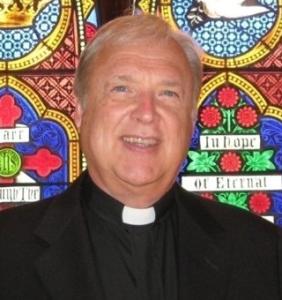Resentment vs Compassion.
Part 5: The Unhappy Consciousness
in White ‘n’ Woke Progressive Christianity

We’re looking at resentment and compassion. They’re two different things. Right? Or, might a simple division be too simple? After all, within resentment understood as ressentiment, an element of compassion resides. One re-feels the injustice and indignation done to others, sometimes done to a previous generation.
We’re in Part 5 of this series of articles. Here’s what to expect.
Resentment vs Compassion. Part 1: From Resentment to Ressentiment
Resentment vs Compassion Part 2: From Ressentiment to Reparations
Resentment vs Compassion Part 3: Russian Christian Nationalism
Resentment vs Compassion Part 4: American Christian Nationalism
Resentment vs Compassion. Part 5:” Ressentiment in the White ‘n’ Woke Unhappy Consciousness of Progressive Christianity
Resentment vs Compassion. Part 6: Ressentiment with Copmpassion
Resentment vs Compassion Part 7: Christian Natiionalism’s Decline Narrative
Resentment vs Compassion Part 8: The Unhappy Consciousness Narrative
Resentment vs Compassion Part 9: To Slay the Christian Nationalist Dragon
Resentment vs Compassion Part 10: Don’t trust your pastor
Resentment vs Compassion Part 11: Christian Nationalism vs Anti-Christian Nationalism
In Part 1 of Resentment vs Compassion, we noted how ressentiment re-feels the victimization of one’s ancestors or even the sense of injustice someone else feels. This locates an element of compassion right within ressentiment. Most frequently in today’s world, ressentiment contributes to the ideology of an underclass expressing its hostility toward those who are privileged due to wealth, race, or social standing.
For the progressive Christian, resentment against injustice is a feeling that gushes up from love for the neighbor. This is a godly feeling. Karl Rahner puts it in unnecessarily complex yet edifying fashion. “We encounter God in a radical way everywhere as a question to our freedom, we encounter him unexpressed, unthematic, unobjectified and unspoken in all of the things of the world, and therefore and especially in our neighbor” (Rahner, 1978, 99). Ressentiment in the life of the progressive Christian, at bottom, expresses compassion.
However, there is risk here. The moral risk in ressentiment is that it can energize an ideology that leads to scapegoating and mob violence. Finally, violence provides the means for rendering justice on behalf of oneself or even someone else who has suffered injustice.
Today’s white ‘n’ woke progressive Christian exhibits both resentment and compassion. These two strands of fettucine are hopelessly intertwined. Not integrated. Just intertwined.
In an astonishing and confusing reversal, the white ‘n’ woke progressive Christian reverses the direction of the arrows fired by victims against their victimizers. In the name of compassion, we white progressive Christians fire the arrows of acrimony toward ourselves. Missiles routinely fired out of ressentiment are, in the case of progressive white Christians, fired at backwards. We white progressive Christians are the target of our own resentment. Benjamin Radford calls it “moral masochism” (Radford, 2022, p. 11).
So, the public systematic theologian needs to pause a moment to look more closely. When it comes to today’s progressive Christian, the dynamics of ressentiment become as entangled as the fettucine strands in a serving of Alfredo. Let’s try to untangle them. If you’d like more resources on Public Theology, click here.
The Unhappy Consciousness of the Progressive Christian

There are many more strands in this serving of fettuccini. Be patient.
What is a Progressive Christian? “Progressive Christianity is the post-modern influenced evolution of historic mainline liberal Protestant Christianity and it is an heir to the Social Gospel movement,” says blogger Roger Wolsey. Progressive Christianity “first took on this name in 2000. It draws from process theology, liberation theology, feminist, womanist and eco-theologies as well.” Here’s an almost creedal summary offered by Linda Sohn.
In our church, we believe:
Black Lives Matter
Women’s Rights are Human Rights
No Human is Illegal
Science is Real
Love is Love
Kindness is Everything
DISCLAIMER. If what I’m about to say sounds like a critique of Progressive Christianity, it is. Yet, make no mistake, the progressive Christian communion is my communion. It’s where I have chosen to reside as a follower of Jesus. This is a critique from within by a public systematic theologian. This is not right wing acrimony. Having said that, let’s proceed.
Now, back to untwining the spiritual fettuccini of the white ‘n’ woke Progressive Christian. Note how for Lonergan ressentiment includes re-feeling. What prompts ressentiment can include re-feeling the victimization of someone else. The oppression occurred in a previous generation. Not the present one. The past lives on in the present through ressentiment.
On the one hand, this re-feeling evinces a level of compassion for one’s ancestors who suffered oppression. The current generation feels sympathy and empathy toward their progenitors. On the other hand, today’s re-feeling provokes a contemporary sense of injustice, indignation, and outrage. We feel the outrage on behalf of someone else’s victimization. We feel outrage on behalf of the other, on behalf of “them.”
My Sermon that Fizzled

On one occasion I preached a sermon dealing with racism in America. I told the congregation that my particular European ancestors did not reach American shores until after the Civil War. Yet, I said with confidence, we should still “own” America’s history with its slavery and its aftermath. We should feel responsible. We should try to rectify the racist legacy.
Following worship my college-aged daughter, Kathy Kim, told me she disagreed. Now, note that Kathy Kim was adopted while an infant from an orphanage in Seoul, Korea. She’s an immigrant, a naturalized American citizen. “Daddy,” she said, “I don’t feel responsible for slavery in America. My ancestors were on the other side of the Pacific at the time.”
Some of my sermons just fizzle.
Progressive entanglement of ‘We’ and ‘They’
Progressive Patheos columnist Tom Fuerst feels such outrage over racial prejudice and introjects this outrage toward his own white race. He speaks for white ‘n’ woke self-loathing.
“White people have been the DOMINANT perpetrators of racism in America…and around the world….We’re unwilling to critique our ancestors without deflecting or excusing them. People asking us to acknowledge our privilege seems like ‘shaming’ to us, when it’s precisely our ‘privilege’ that often shames them.”
Examine this with a magnifying glass. Resentment has been introjected. The practical effect is this: the ‘them’ always remains ‘them’ for the progressive Christian. Really?[1] This is a subtle yet decisive point. The white ‘n’ woke progressive Christian sustains the otherness of those considered non-white. There is no moral mechanism to turn a ‘them’ into an ‘us’.
If we identify ourselves with the victims, then their victimage becomes our own victimage. That’s compassion at work. Yea! The two victims become indivisible in ressentiment consciousness and ideological formulation. Yea!
But, there’s a ‘nay’ for the ‘yea’. Community or oneness or belongingness becomes precluded. For the unhappy consciousness of the white progressive, the task of those people dubbed ‘non-white’ or ’people of color’ is to perpetually reinforce white shame for treating non-white people as ‘other’. The net effect is that ‘otherness’ never gets replaced with community. The ‘they’ never gets replaced with ‘we’.
Untangling the Progressive Christian’s Spiritual Fettucine

To untangle the ideological fettucine, let me borrow a term from the philosopher Georg Friedrich Wilhelm Hegel (1770-1831), das unglückliche Bewußtsein. [2] Imagine yourself to be a monk or a nun in a medieval monastery. You are practicing asceticism. That is, you are abstaining from worldly pleasures to pursue spiritual goals. You have made vows of obedience, poverty, and chastity. You cultivate self-sacrificial habits such as prayer, hospitality, compassion, and almsgiving. You request a physical flogging to rid yourself of sins such as pride or judging others. The more you suffer, the better you feel. The inverted logic goes like this: the unhappier I am the happier I am. The degree of your happiness becomes correlated to the degree of your agony.
Just how does this unhappy consciousness manifest itself among white ‘n’ woke Christian progressives today? Whips are gone. To replace self-flagellation by whip, today’s leaders invite verbal flagellation by those who call racism a “sin” and pin it on those belonging to the group self-designated, “white.” The more severe the denunciation of white privilege or even white supremacy, the better white progressives feel.[3] The dirtier we feel, the more justified we feel. White self-loathing has become a badge of public repentance, of spiritual virtue. This is the way the medieval unhappy consciousness lives on in today’s churches.
The unhappy consciousness is addicted to contrition, confession, and repentance. Now, contrition, confession, and repentance are good things, to be sure. But perpetuation of this ritual as white self-loathing is not the path to overcoming institutional racism. Even after repentance from racial prejudice, institutional racism continues unabated.
White ‘n’ Woke Progressive Self-Loathing
 What has happened here is that white ‘n’ woke Christians engage in an ideologically driven re-feeling. What are we re-feeling? The feelings of those oppressed. White progressives even re-feel the ressentiment of the underclass. We white progressive take ownership of our sins coming to light in this ressentiment. What a beautiful thing! What a spiritually powerful thing! This is more than even Good Samaritan compassion at work! This is compassion right in the heart of joining someone else’s ressentiment.
What has happened here is that white ‘n’ woke Christians engage in an ideologically driven re-feeling. What are we re-feeling? The feelings of those oppressed. White progressives even re-feel the ressentiment of the underclass. We white progressive take ownership of our sins coming to light in this ressentiment. What a beautiful thing! What a spiritually powerful thing! This is more than even Good Samaritan compassion at work! This is compassion right in the heart of joining someone else’s ressentiment.
But then a switcheroo occurs. The white ‘n’ woke progressives turn what they perceive should be anti-white ressentiment against themselves. The underclass’s re-feeling of injustice becomes the super-ego of white progressive consciousness.
Our African American, Latinx, and Asian church members do not need to file a formal complaint. The unhappy consciousness of our white leaders does it for them.[4][5] Our white progressive leadership has thus internalized anti-white ressentiment and used it against themselves. Genuine compassion has been pressed into the service of the unhappy consciousness.
The Insatiable Appetite of the Unhappy Consciousness
There is one more strand of this spiritual fettucine that needs to be straightened out. The unhappy consciousness of the white progressive Christian is like an insatiable dragon who needs constant feeding. Who does the feeding? The non-white membership of the churches does the feeding. Those who do not enjoy white privilege must continually belittle and berate the privileged white leadership for its privilege. This serves to keep the white privileged leadership in the center of discourse, in its position as the dominating class within the institution. Once again, the underclass is pressed into the service of white privilege. Racism becomes more deeply disguised as the white sinners become saints through their renunciation of their own privilege.[6][7]
 When it comes to discussing race, progressives have little tolerance for intolerance–past or present. We throw labels around as easily as the Pharisees threw stones at adulterous women. How dare someone not have OUR enlightened view on the world! How dare they not have been born with the innate view of justice, righteousness, and soul that we have!
When it comes to discussing race, progressives have little tolerance for intolerance–past or present. We throw labels around as easily as the Pharisees threw stones at adulterous women. How dare someone not have OUR enlightened view on the world! How dare they not have been born with the innate view of justice, righteousness, and soul that we have!
What amazes me is that this spiritual subterfuge continues to be successful at maintaining institutional racism replete with cooperation of both non-white and white constituencies. I see the unhappy consciousness overtaking white ‘n’ woke progressive Christianity as a sick spirituality.
In an almost inexplicable and convoluted way, what we expect to be the ressentiment within the non-white constituency has been gobbled up by the white elite to feed its own spiritual narcissism. What leaves me aghast is that it seems to be effective at maintaining intact the white centeredness of the progressive ecclesial establishment.

Never a ‘We’. Always a ‘They’.
On my campus one day in Berkeley, we were holding our obligatory annual anti-racism workshop for students, faculty, and staff.[8] The white ‘n’ woke seminar served the usual fare of the history of slavery, Jim Crowe, white privilege, and institutional racism. Speakers and panels preceded small group discussion. In each small group discussion unit, one or more persons of color were asked to report how they personally experienced white supremacy.
 I spotted one of our overachieving African American students stomping out into the courtyard with a disgusted facial expression and tears in her eyes. I approached her and asked what was wrong.
I spotted one of our overachieving African American students stomping out into the courtyard with a disgusted facial expression and tears in her eyes. I approached her and asked what was wrong.
“All those white people want me to do is bash them for their racism,” she cried. “Bash. Bash. Bash. Why can’t I just belong here?” Well, this is a close paraphrase, if I remember correctly. I was grief stricken that she felt excluded.
I respectfully ask the leadership in my own ecclesial communion, the Evangelical Lutheran Church in America, to cease and desist in employing the categories ‘white’ versus ‘non-white’ or ‘people of color’. When these categories obtain, this bright African American woman can never belong. If we would substitute categories such as ‘Lutheran’ and ‘non-Lutheran’, then she could belong.
The unhappy consciousness of the white progressive Christian demands that non-white people of color bash us, so that we can feel good spiritually. The problem is that non-white people of color must remain perpetually ‘other’. Because non-white people of color never get bashed, a line is drawn between the bashed and the unbashed. This is a line that dare not be crossed. The possibility of a Christian community made up of ‘we’ is precluded. This is the result of the unhappy consciousness perpetuating its own spiritual narcissism.
If white progressives are forbidden to bash Black, Indigenous and People of Color (BIPOC), then can they bash other white people? Certainly. Well, how does that work?
White progressives bash white evangelicals. The log in the progressive’s eye blinds to make seeing the speck in the evangelical eye difficult. So, imagination substitutes for evidence. The progressive imagines that the evangelical is a White American Christian Nationalist, a WACN. That is, the evangelical is allegedly guilty of the racism that the progressive has just repented from. The progressive then brags about his or her or their white self-loathing at home while scapegoating the evangelical across town.
In sum, when you go looking for actual ressentiment in human experience, take a magnifying glass.
What’s Next?
 White ‘n’ woke Progressive Christians risk introjecting their ressentiment into white self-loathing and, thereby, they fuel a moral narcissism in what G.W.F. Hegel would call the ‘unhappy consciousness’, das unglückliche Bewußtsein.
White ‘n’ woke Progressive Christians risk introjecting their ressentiment into white self-loathing and, thereby, they fuel a moral narcissism in what G.W.F. Hegel would call the ‘unhappy consciousness’, das unglückliche Bewußtsein.
In this series, “Resentmant vs Compassion,” we have been exploring the hypothesis that a dimension of ressentiment could lodge within compassion. Why? Because in both cases we re-feel what the victim of an injustice once felt. So, in Part 6, we will turn our attention directly to compassion.
▓

Ted Peters is a Lutheran pastor and emeritus seminary professor, teaching theology and ethics. He is author of Short Prayers and The Cosmic Self. His one volume systematic theology is now in its 3rd edition, God—The World’s Future (Fortress 2015). His book, God in Cosmic History, traces the rise of the Axial religions 2500 years ago. He has undertaken a thorough examination of the sin-and-grace dialectic in two works, Sin: Radical Evil in Soul and Society (Eerdmans 1994) and Sin Boldly! (Fortress 2015). Watch for his forthcoming, The Voice of Christian Public Theology (ATF 2022). See his website: TedsTimelyTake.com.
Ted Peters’ fictional series of espionage thrillers features Leona Foxx, a hybrid woman who is both a spy and a parish pastor.
▓
[1] Tim Shuttle thanks Critical Race Theory for “exposing the ways in which all white people—liberal democrats and conservative republicans alike—benefit from our current systems, simply because they are white.” All white people have genetically inherited a moral responsibility for racism. According to this interpretation, racism is an original sin rather than an actual sin from which one could repent.
Ressentiment may be too weak a concept for serious critical theory, argues Rahil Jaeggi. “Although it is a productive category for the diagnosis of our times, ressentiment alone is too weak a tool for critical theory. In order not to lose its force and not to become a psychologizing and individualizing interpretative term, ressentiment needs to be understood as a mode of regression and therefore should be embedded in a theoretical framework for understanding crisis that allows us to address the social structures that enable, necessitate, and nourish ressentiment.”
[2] One’s consciousness “feels itself in the bitterness of soul-diremption. It is the movement of an infinite yearning…a yearning [for what] is the unattainable ‘beyond’ which, in being seized, escapes or rather has already escaped.” Georg Wilhelm Friedrich Hegel, The Phenomenology of Mind: The Unhappy Consciousness. http://www.stjohns-chs.org/general_studies/philosophy/Romantic/hegel.html.[3] Max Scheler himself identified a version of the unhappy consciousness in the Christian. “The more I reflected on this question, the more clearly I realized that the root of Christian love is entirely free of ressentiment, but that ressentiment can very easily use it for its own purposes by simulating an emotion which corresponds to this idea. This simulation is often so perfect that even the sharpest observer can no longer distinguish real love from ressentiment which poses as love… The core of the ressentiment Christian’s idea of God is still the avenging Jehovah. The only difference is that revenge is now masked as sham love for the “small.”” (Scheler 1915, 1994, 32).
[4] Progressive Christians are willing to fault the Bible for contributing to the history of injustice. ” Deadly interpretations of passages like these [Luke 17] have left their bloody fingerprints all over history, from crusades to genocide to slaver,” says Progressive Patheos columnist Lindsey Paris-Lopez. Similarly, Keith Giles exacts a hermeneutic of suspicion in his Patheos post: “Why Certain Words are Left Out of the Bible.” Try this testimony cited in The Babylon Bee: “”I have rid myself of all racial biases, prejudice, and hatred, unlike Jesus. He was constrained by the backwards racial prejudice of the Jewish people in the early first century. I have achieved a high degree of wokeness, a level of social justice awareness nigh unattainable by mere mortals.”
Evangelical Patheos columnist Roger E. Olson distinguishes classic Liberal Protestantism from Progressive Christianity. He’s less than sanguine about the latter. “In the past decade, ‘progressive Christian’ (here in the U.S.) seems to be a label preferred by real liberal Christians (whose Christianity seems dubious to me) but also by non-liberal Christians who are ‘open’ to new ideas such as gay marriage, LGBTQ rights within society and the churches, passionate social justice activism, egalitarianism, etc.”
[5] Susan Pitchford would gladly hear a white person’s confession. “White people who claim to be color blind have a point: they are indeed blind to the way our color also shapes our life experience and resulting view of the world.”

[6] No one would deny that institutional racism abides among progressive Christians right along with conservatives. “It is a historical fact that one of the primary supporting institutions of African enslavement was the Christian churches,” we find in a public theology blog post of Billy Michael Honor. “Many of the churches provided the theological and ideological basis on which enslavement functioned and thrived.”
“Christian culture, progressive or otherwise,” says African American justice educator and Patheos progressive Alicia T. Crosby, “is complicit in upholding white supremacy and participating in the toxic practice of centering whiteness at the expense of honoring the Imago Dei present in others.” She then provides us with a definition of white supremacy.
“White supremacy establishes whiteness as superior to other racial identities through the elevation of the needs, wants, concerns, perspectives, feelings, and desires of white people over that of people of color. This includes the centering of the theological, rhetorical, aesthetic, and economic priorities and preferences rooted in whiteness as well as the appropriation and rebranding of cultural expressions sourced from people of color.”
The unhappy consciousness of the white progressive perpetuates “the centering of the theological, rhetorical, aesthetic, and economic priorities and preferences rooted in whiteness.”
[7] According to SMU communications professor and Patheos columnist Maria Dixon Hall, we progressive Christians can feel quite self-righteous about our moral superiority. We can self-justify. A kind of blindness due to self-justification seems to persist in both conservative and progressive camps. In a CT post, Tish Harrison Warren writes,
“Some conservatives belittle the reality of racism. They acknowledge that racism is a sin, but they see it as mostly a relic of the past or merely the wrong actions of a small, dwindling group of people. On the other hand, some moderate or progressive Christians are overcome with guilt and shame, quick to condemn others, and often unsure of how the gospel of Jesus should impact conversations about our own racial bias and sin.”
[8] Former President Donald Trump labeled anti-racism workshops “un-American” and sought to shut them down. This fact alone makes me want to increase their number and influence.
References
Anti-Racism Digital Library. 2022. Progressive Christians Uniting.
Deane-Drummond, Celia. 3/2017. “Empathy and the Evolution of Compassion.” Zygon 52:1 258-278.
Fassin, Didier. 2013. “On Resentment and Ressentiment.” Current Anthropology 54:3 249-267.
Gilman, James. 2014. Christian Faith, Justice, and a Politics of Mercy. Lanham MA: Lexington.
Goetz, Jennifer and Emiliana Simon-Thomas. 2017. “The Landscape of Compassion: Deffinitions and Scientific Approaches.” In The Oxford Handbook on Compassion Science, by Emiliana Simon-Thomas, Stephanie L Brown, Monica C Worline, C Daryl Cameron, and James R Doty, eds Emma M Seppala, 3-16. Oxford: Oxford University Press.
Kelly, Casey Ryan. 2020. 2-24. “Donald J. Trump and the rhetoric of ressintement.” Quarterly Journal of Speech 106:1 file:///C:/Users/Ted/OneDrive/Documents/My%20Research/Kelly%20Trump%20Ressentiment.pdf.
Lonergan, Bernard. 1972. Method in Theology. New York: Herder and Herder.
Peters, Ted. 1993. Sin: Radical Evil in Soul and Society. Grand Rapids MI: Wm B Eerdmans.
Radford, Benjamin. 2022. America the Fearful. Jefferson NC: McFarland.
Rahner, Karl. 1961-1988. Theological Investigations. 22 Volumes. New York: Seabury.
—. 1978. Foundations of the Christian Faith. New York: Seabury Crossroad.
Scheler, Max. 1915, 1994. Ressentiment. Marquette: Marquette University Press: file:///C:/Users/Ted/OneDrive/Documents/My%20Research/Scheler%20Max%20Ressentiment.pdf.














